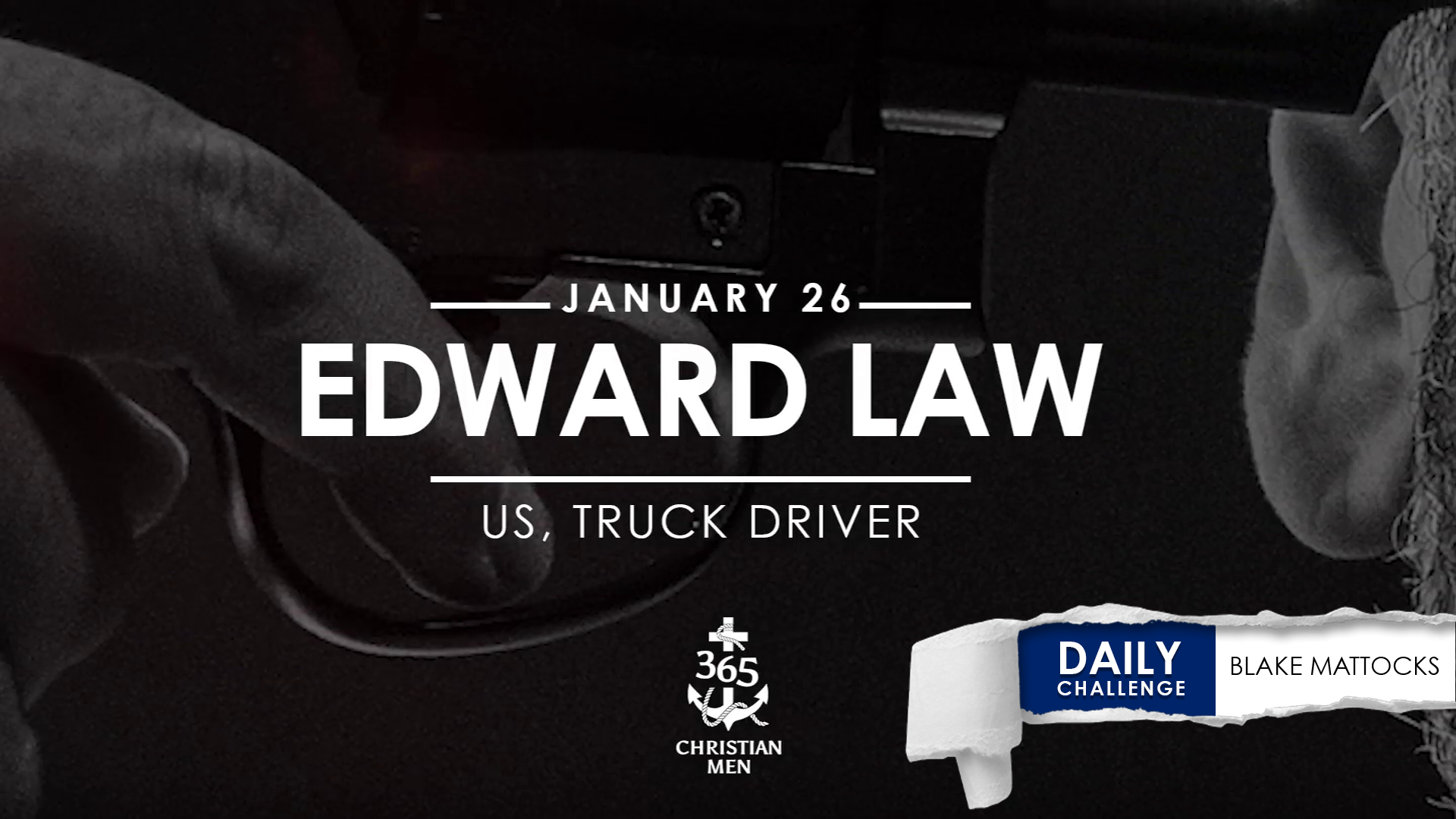February 1. Josh McDowell. For more than fifty years, Josh has brought instruction and encouragement to youth, families, churches, leaders, and individuals. He’s an everyday-language man, who helps prepare people for the life of faith and the work of the ministry.
Josh has delivered about 27,200 talks to more than 25,200,000 people in 126 countries. On this date in 2016, Josh published The Beauty of Intolerance. In fact, he has also written or co-authored 151 books. World Magazine named Josh’s book Evidence That Demands a Verdict one of the twentieth century’s top 40 books. But Josh wasn’t always on the top. Here’s his story.
A broken home isn’t the end of the story when we let God rewrite our futures.
Josh stood facing the congregation. “Growing up, my father was the town drunk,” he said. “ … I’d go to school, and my friends would make jokes about my dad downtown in the gutter making a fool of himself.” Josh was telling how his father’s alcohol habit had wreaked havoc on his family throughout his entire childhood.
“We lived on a farm, and I’d go out to the barn, and I’d see my mother whom I loved very much, lying in the manure in the gutter behind the cows, where my father had yanked the air-hose off of the pipelines and just beat my mother … until she was so weak and bloody that she couldn’t stand up.”
Josh continued, describing the memory of his eight-year-old fists, balled up and pounding on his drunk father as hard as he could, as he shouted, “When I’m strong enough, I’ll kill you!”
“All I ever wanted as a kid was for my father to quit hurting my mother, and I couldn’t stop it,” Josh said.
He recalled arriving home one evening as a high school senior, whose graduation was just weeks away. As he stepped into the heaviness of their home, he could hear his mother weeping in her bedroom, and he ran to her bedside.
She was lying in her bed, her head on a tear-stained pillow. “Son, your father has broken my heart.” Tears of despair rolled down her face. “I have lost the will to live. All I want to do is live until you graduate, and then I just want to die.”
Sixty-one days later, Josh graduated from high school. And the following Friday his mother passed away.
“My mother died of a broken heart, and my father broke it, and I hated him for it,” Josh told the congregation. After decades of tragedy, Josh slammed the door of his heart on God and hated his father for the indescribable pain he had caused.
“Whether God existed or not, I couldn’t care less,” he said.
But on December 19, 1959, God the Father broke into Josh’s bitter heart when a college friend told him about Jesus and what he was like. “It changed my life,” Josh said. “Within six months to a year, my entire life was transformed.
Not long thereafter, Josh was in a serious car accident, and he had to stay with his father. The ambulance dropped him off and strapped him to his bed. His father walked into the room.
“Every muscle in my body tightened,” Josh said.
As Josh’s dad paced back and forth next to his bed, Josh noticed two things. His dad was sober, and he was crying. Two things Josh had never seen from his father his entire life. He leaned over Josh’s bed, tears of regret falling onto Josh’s face, and said, “Son, how can you love a father such as I?”
“Dad, six months ago I hated you, I despised you. But I have come to know Jesus Christ as Savior and Lord, and I have learned one thing … that God became man, and his name is Jesus, and he is passionate about a personal relationship with you,” Josh replied.
That night, at his son’s bedside, the town drunk became a fool for Christ. And over the remaining fourteen months of Josh’s father’s life, he introduced more than a hundred other people to Jesus. As Josh shared these words, the congregation erupted in applause.
“Praise the LORD, my soul, and forget not all his benefits—who forgives all your sins and heals all your diseases, who redeems your life from the pit and crowns you with love and compassion” (Psalms 103:2–4 NIV).
Every family has an imperfect story. Is there anything in yours that God wants to heal? A broken home isn’t the end of the story when we let God rewrite our futures.
McDowell, Josh. “Josh McDowell Testimony Part 1.” Published October 22, 2008. https://www.youtube.com/watch?v=d5O5nD0pyPc&t=107s.
McDowell, Josh. “Josh McDowell’s Story Updated.” Published January 29, 2013. https://www.youtube.com/watch?v=WhJ9HkaR8Gg.
“Why are Christians Leaving the Church – Josh McDowell interview.” Published August 1, 2018. https://www.youtube.com/watch?v=l4Em1sdCUyo.
McDowell, Josh. “Josh McDowell Testimony Part 3.” Published October 22, 2008. https://www.youtube.com/watch?v=ZLmLoCiIyJM.
Story read by Chuck Stecker
Story written by Shelli Mandeville, https://worthy.life/














